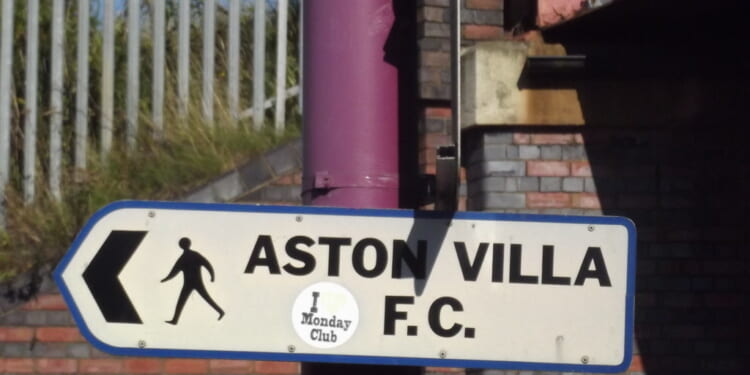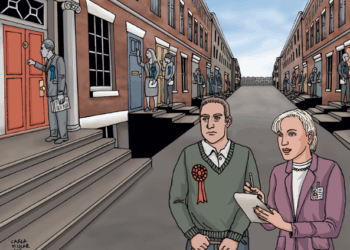Zak Wagman is a Conservative councillor on the London Borough of Harrow. He is also a Board Member of the Arsenal Supporters’ Trust
When West Midlands Police advised that Maccabi Tel Aviv fans should be barred from attending their Europa League fixture at Villa Park next month, the immediate response was predictable. Politicians across the spectrum condemned it. Jewish groups rightly called it perverse. The Prime Minister declared it the wrong decision.
But look beyond the headlines. This isn’t really about football, and it isn’t only about antisemitism. This is about state sovereignty and the willingness of our authorities to enforce law and order.
Yes, it is obviously shameful that Israeli football supporters cannot safely watch their team play in Birmingham. The recent terrorist attack in Manchester demonstrated once again that British Jews live under constant threat. But if you’re not Jewish, if you have no connection to Israel, you might be tempted to think this doesn’t concern you. You would be wrong.
Because what the Villa Park decision actually reveals is something far more fundamental: when the state concludes it cannot guarantee the safety of lawful citizens engaging in lawful activity, it has effectively ceded sovereignty over that space. The police aren’t merely making a pragmatic security decision. They are admitting they cannot or will not enforce order in the face of potential disorder. That is the beginning of a very dangerous road.
Look to the continent. Swedish police have identified over sixty areas they describe as “especially vulnerable” where there is “a widespread disinclination to participate in the judicial process” and where officers struggle to fulfil their mission. In France, police in areas like La Courneuve have required reinforcements simply to maintain order, whilst the Mayor of Amiens admitted parts of his city had become places “where one could no longer order a pizza or call for a doctor.” These situations didn’t emerge overnight. They began with authorities making accommodations, avoiding confrontation, choosing the path of least resistance. First you stop enforcing certain laws. Then you stop entering certain areas. Then those areas exist partially outside the reach of the state.
Britain is not there yet. But when police cannot confidently protect football fans at a major sporting event because they fear they cannot manage potential violence and intimidation, we must ask: where does this end? If the state cannot police a high-profile football match with advance notice and significant resources, what happens to ordinary law enforcement? What happens when your car is stolen? When a business is vandalised? When citizens cannot expect equal protection under the law because authorities have decided enforcing it is too difficult, too costly, or too provocative?
This isn’t about the source of the disorder – whether it stems from organised crime, political extremism of any stripe, or anything else. The cause is almost irrelevant to the principle at stake. What matters is that the state maintains its monopoly on legitimate force and its commitment to enforce the law equally, everywhere, for everyone. Once we accept that certain activities cannot proceed because the authorities are unwilling or unable to maintain order, we have accepted a fundamental diminution of sovereignty. We have accepted that there are limits to where the state’s writ runs.
The government’s initial response was encouraging in recognising the decision was wrong and committing to find resources to allow Maccabi fans to attend safely. But we need more than one-off interventions. We need a clear commitment from our authorities at every level: there are no areas of Britain where the state will not enforce the law, no communities where disorder will be accommodated rather than confronted, and no circumstances where lawful citizens will be barred from lawful activity because others threaten violence.
The Manchester attack reminded us that security requires constant vigilance. The Villa Park decision tells us that the greater threat may not be the violence itself, but our willingness to retreat in the face of it. Because once the state begins choosing where and when to enforce order based on what it thinks it can manage, we are no longer one nation under the rule of law. We are a collection of accommodations, each one making the next more likely.
This should alarm all of us, regardless of our politics or background. State sovereignty isn’t an abstract concept. It’s the foundation of everything we take for granted. And foundations, once they begin to crack, are very difficult to repair.










![Donald Trump Slams Chicago Leaders After Train Attack Leaves Woman Critically Burned [WATCH]](https://www.right2024.com/wp-content/uploads/2025/11/Trump-Torches-Powell-at-Investment-Forum-Presses-Scott-Bessent-to-350x250.jpg)






